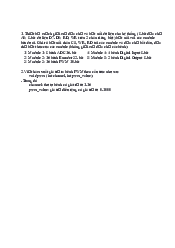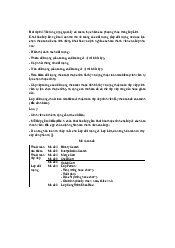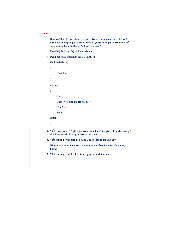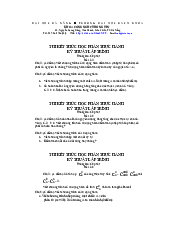











































































Preview text:
Elementary Graph Algorithms
Lecture #5 of Algorithms, Data structures and Complexity November 28, 2015 c JPK&GfH
#5: Elementary Graph Algorithms Plan for today Graphs
• Definitions, terminology, representations • Algorithms
– Breadth-first traversal
– Depth-first traversal
– Finding connected components – Topological sorting
– Critical path analysis c JPK&GfH 1
#5: Elementary Graph Algorithms
The graph as a (mathematical) model
Graphs are used in many (computer science) applications: • Computer networks
• Representation of topological informations (maps, . . .)
• Representation of electronic circuits
• Precedence graphs, workflows, . . .
• Semantic networks (e.g., entity-relationship diagrams)
we concentrate on fundamental graph algorithms c JPK&GfH 2
#5: Elementary Graph Algorithms
Definition – What is a directed graph?
A directed graph (or: digraph) G is a pair (V, E) with • V is a set of vertices
• E ⊆ V × V is a set of ordered pairs of vertices, called (directed) edges
• if E is a set of unordered pairs, G is called undirected Example: • V = { A, . . . , F }
• E = { (A, B), (A, D), (B, E), (C, E), (C, F ), (D, B), (E, D), (F, F ) } A B C D E F c JPK&GfH 3
#5: Elementary Graph Algorithms Terminology
A subgraph of a graph G = (V, E) is a graph G′ = (V ′, E′) with • V ′ ⊆ V and E′ ⊆ E
• as G′ is a graph it follows E′ ⊆ V ′ × V ′
• if V ′ ⊂ V or E′ ⊂ E, G′ is a proper subgraph
Graph G is symmetric if (v, w) ∈ E implies (w, v) ∈ E
• every undirected graph has a corresponding symmetric digraph
Graph G is complete if each pair of vertices is connected via an edge
The transpose of G is GT = (V, E′) with (v, w) ∈ E′ iff (w, v) ∈ E
• the direction of each edge in G is reversed in the transposed graph c JPK&GfH 4
#5: Elementary Graph Algorithms
Terminology – Examples A B C A B D E F D E c JPK&GfH 5
#5: Elementary Graph Algorithms
Definitions – Paths and cycles
A path from vertex v to w is a sequence of edges (vi, vi+1) for
i = 0, . . . , k−1 such that v = v0 and w = vk.
(So v = v0 → v1 → . . . → vk−1 → vk = w )
The length of a path is the number of edges it traverses
Vertex w is reachable from v if there is a path from v to w
A cycle is a non-empty path with the same first and last vertex
• a cycle of the form v v is called a self-cycle (or self-loop)
• a graph is acyclic if it has no cycles
• a cycle of an undirected graph may only visit edges in the same orientation c JPK&GfH 6
#5: Elementary Graph Algorithms
Examples – Paths and cycles A B C D F E
A B E D B and C F F are example paths c JPK&GfH 7
#5: Elementary Graph Algorithms
Connected graphs and components
A graph in a collection of graphs is maximal if it is no proper subgraph of any of these graphs Undirected graph G:
• G is connected if each vertex is reachable from any other vertex
• a connected component of G is a maximal connected subgraph of G Directed graph G:
• G is strongly connected if each vertex is reachable from any other vertex
• G is weakly connected if, after making all edges undirected, the resulting undirected graph is connected
• a strongly connected component of G is a maximal strongly connected subgraph of G
A non-connected graph can be uniquely partitioned into separate connected components c JPK&GfH 8
#5: Elementary Graph Algorithms
Connected undirected graphs
an undirected graph; what are its connected components? c JPK&GfH 9




